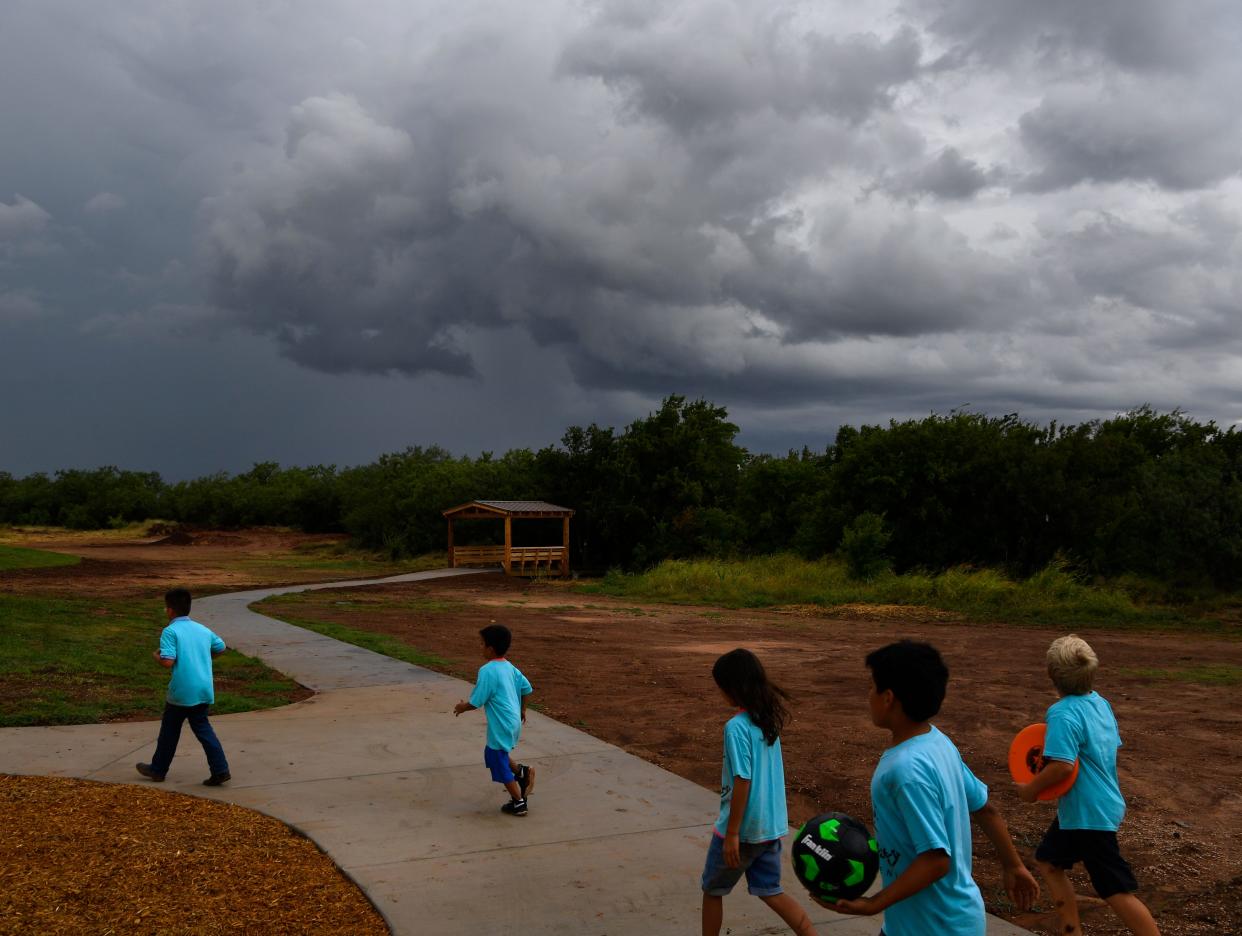Child care study shows team effort needed for Abilene shortfall

The local election season has passed, with many critical issues, in the view of the candidates, discussed.
One that wasn't addressed much but is near the top of the list is child care.
The shortage of affordable, timely child care has been discussed, and a presentation made last week at a noon meeting of United Way of Abilene provided an update on efforts to address the need here.
Mary Christopher, a longtime educator, gave the presentation. Christopher and her husband, Phil, retired First Baptist Church minister, have headed the Coalition for Quality Child Care study.
"One urgent and pressing problem in the Abilene community is the need for quality child care," Mary Christopher said. "The challenge of child care cannot be overstated, as it touches many areas of community life, including family needs, child development, military and manufacturing options, non-traditional hours, and livable wages for child care educators. This child care crisis calls for a diverse set of solutions."
Greater need that ever

The needle on child care need moved to urgent when Abilene dealt with the recent pandemic, with ripple effects continuing.
Child care facilities quickly were identified as a necessary business to keep open when the state mandated that others close.
Employees unable to find child care bowed out of the work force, some temporarily but others permanently, putting businesses in a quandary to find enough employees to offer efficient services.
When child care is unavailable, the employee misses work. Not only does that hurt the business, the hourly employee does not get paid, thus bringing the financial loss home, Christopher said.
Those doing contract work fall behind in tasks. The job doesn't get done, and the employee often doesn't get paid until it is, she said.
It's a double-edge sword thrust into the community, Christopher said.
In some cases, businesses have had to reduce hours or days of operation. Combined with other challenges, some businesses had to close.
Child-care facilities were not immune, Christopher said. Waiting lists are long due in part of the lack of trained employees and also to the size of the facility. As Abilene grows, billing itself as an attractive community for families, the need has increased.

Day Nursery of Abilene, which has four centers, said during its recent 50th anniversary that expansion is necessary. It serves 600 on average each weekday, and its waiting list is 300.
In its effort to recruit teachers, the Wylie ISD, for example, hears from teachers that the need for child care is great. This school year, the WISD offered a program for 4-year-olds.
Next year, the district would like to offer a program for birth-through age 3.
It won't be free, but the availability and convenience is a plus to keeping current teachers and bringing new ones into the district, Christopher said.
Child care is a community building block
Christopher underscored the need more generally.
It is important, she said, because:
It is essential to young children’s physical, academic and socioemotional development.
It is a building block that helps families thrive through the community’s investment.
It is crucial to the economy by allowing parents and guardians to participate in the workforce.
"High-quality child care helps to ensure that our children will become successful, productive members of society regardless of their socio-economic status," she said.
Thus, the need to address child care led to the formation of the coalition.
The coalition team
Six nonprofits were involved, including United Way. Others were Shelton Family Foundation, Development Corporation of Abilene, Community Foundation of Abilene, Safe Families and Alliance for Women and Children.
Businesses and organizations involved were Hendrick Health, First Financial Bank, MasterScapes, AbiMar, First Watch Credit Union and Abilene Chamber of Commerce.
The Abilene and Wylie school districts were involved, as was McMurry University, Cisco College and Texas Tech University Health Science Center.
The city of Abilene, Dyess Air Force Base and Workforce Solutions of West Central Texas were on the team.
First Baptist, Pioneer Drive Baptist and Beltway Park Church were involved.
Additionally, the Christophers gathered information on how other Texas cities or even United Way agencies in other states were dealing with the child-care challenge. It is not unique to Abilene, and if Abilene is to compete with other cities that are addressing the issue, the city must be proactive, Christopher said.
The purpose
The group was not tasked with solving the problem Christopher said. Its goal was to facilitate conversation and connect groups that face the child care shortfall similarly.
Child care affects education, employment and the overall economic climate of the community, they found.
The goals were to:
Provide insight and voice around child care issues in the Abilene community
Think deeply about child care concerns
Share conversations regarding strategies to impact child care interests
Help organizations respond to important family and economic needs
What was found

The coalition offered 10 initiatives key to solutions:
Create financial supports/resources that promote entry and advancement in wages and benefits for child care educators
Provide resources to churches and other providers to open new child care centers or increase capacity at current child care centers
Create a child care network to share services, such as accounting, curriculum, training for child care programs, etc.
Increase awareness of existing child care resources and referral system
Provide non-traditional hours for child care as determined by need
Explore parent-pay 4-year-old programs in public schools and through partnerships between schools and child care providers
Increase knowledge of and availability in after-school care and gap (holiday and summer) care
Provide resources to explore on-site child care options in businesses
Encourage businesses to investigate child care subsidies as an employee benefit
Empower individuals to become business owners as homebased or facility-based child care providers
"As a group, we hope to share the knowledge gained and initiatives with organizations in the Abilene community to raise awareness of the issues and needs related to child care," Christopher said. "We realized during our work that many of us are not aware of what is already offered by providers and other entities that support quality child care.
"The common thought when child care is discussed might be “'that doesn’t apply to me because I don’t have children who need child care.' Through our study, we know that child care impacts our community because as all our children thrive, our community thrives. The future of Abilene’s economic development, family health, graduation rates and quality of life depend on addressing the child care crisis."
Christopher said the coalition brought entities together and both challenges and ideas were presented. What became clear, she said, is that the issue is inclusive. The solution will involve teamwork.
A church with a large campus but dwindling congregation, for example, may be the perfect location for child care, Christopher said.
And with this increasing need, she said, childc are may be a good business venture. What needs to be done to encourage interest and then to support that venture as it launches, she asked?
The need for teamwork is why umbrella nonprofits such as United Way and Community Foundation are involved, as well as many large employers.
"We need to come together to solve these child care issues," Christopher said. "The next step will involve discussing the possibility of organizations operationalizing one or more of the initiatives developed by the coalition. As businesses and organizations implement some of the ideas, change will begin to happen.
"The Abilene ccmmunity can impact the economic trajectory of our region through high-quality early learning for all children. "
This article originally appeared on Abilene Reporter-News: The local election season has passed, with many issues critical in the view of the candidates discussed.

